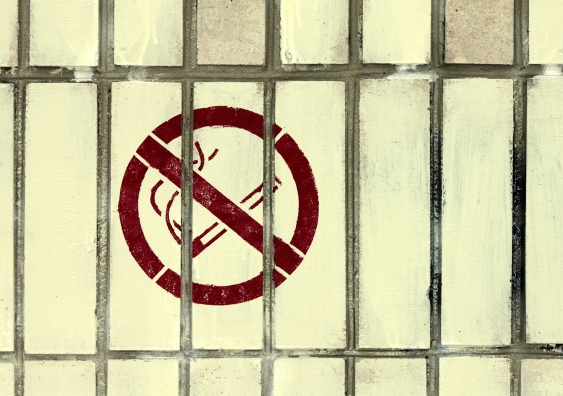Smoking bans in prison – time for a breather?
Prison bans will not reduce smoking rates unless more support is given to prisoners to help them kick the habit once and for all, according to UNSW researchers.
Prison bans will not reduce smoking rates unless more support is given to prisoners to help them kick the habit once and for all, according to UNSW researchers.

Prison bans will not reduce smoking rates unless more support is given to prisoners to help them kick the habit once they return to the community, according to UNSW Kirby Institute researchers.
In an editorial published in the Medical Journal of Australia today, the researchers said that despite bans in most Australian jails, most prisoners will likely resume smoking following release back into the community.
Professor Tony Butler, program head of the Justice Health Research Program at Kirby Institute and research fellow Dr Lorraine Yap wrote that total smoke-free policies in Australian prisons benefit prisoner health by reducing active smoking and second-hand smoke levels, as well as the risk of litigation for correctional authorities.
“Nevertheless, introducing a total smoke-free policy in prisons is not without problems,” they said.
“Black markets in tobacco and other smoking products, low compliance, and a possible escalation in violence are some of the problems linked with smoking bans.
“The recent riot at the Melbourne Remand Centre was believed to have been caused by the imminent ban on smoking there.”
The authors warned that more support must be given to prisoners once they return to the community, because a return to smoking was highly likely once prisoners are free of the prison ban.
“Total smoking bans alone have been ineffective in reducing smoking rates in this population based on overseas experiences,” they write.
“Follow-up studies of prisoners after their release have found that 56% reported resuming smoking on their first day of release; and 84% had relapsed within three weeks.
“Another follow-up study found that 63% of former prisoners had relapsed on the first day of release, 82% by one week, 86% by one month, and 97% at six months.
“While smoking bans in prisons in Australia are inevitable, a targeted approach that recognises the unique characteristics of this population group is needed, and must involve support both in prison and the community, recognising that imprisonment for most is only temporary,” Butler and Yap concluded.